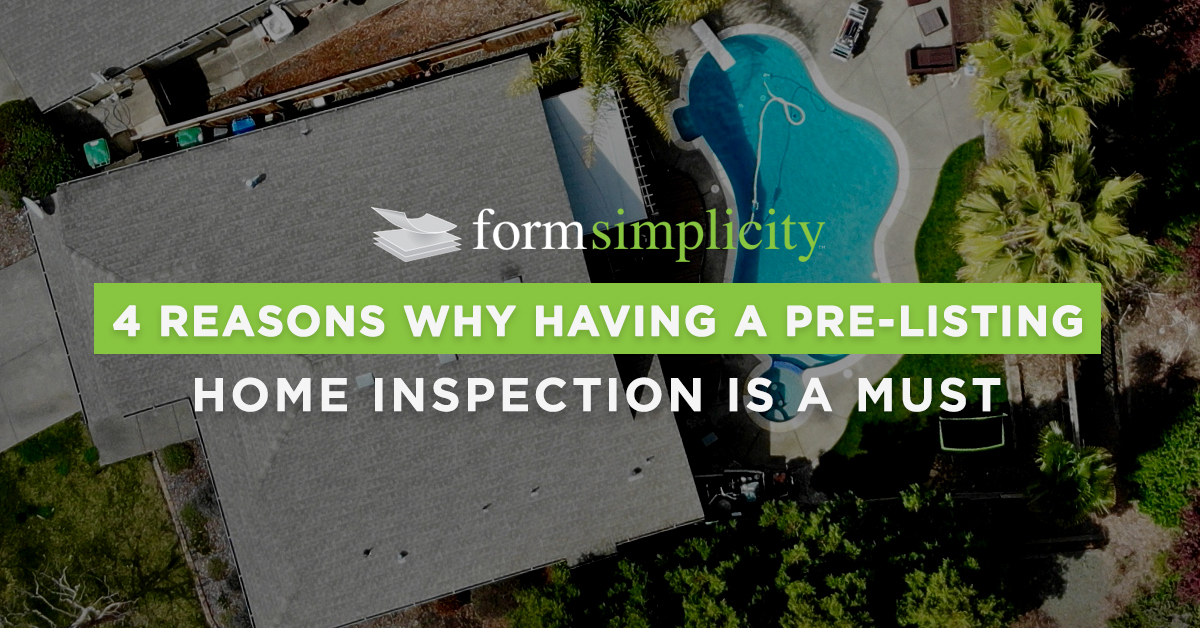
When speaking with a seller about a pre-listing home inspection, you often get push-back: “Why,” they ask, “doesn’t the buyer pay for it?” Yes, the buyer does pay for the home inspection after their offer is accepted. However, by then, it may be too late. When problems with the home remain unknown until the buyer’s inspection, the seller is at risk of losing the sale or having to accept a much lower price.
Whether it is a new or older home, having a pre-home inspection should be a MUST, not a maybe. Does this mean the seller has to fix everything found on the inspection report? No, it only puts the seller in the position of choosing those items they are willing to fix, or not fix; the seller may choose to credit the buyer some repairs at closing as part of the negotiation. The main goal of the pre-listing home inspection is for the seller to be aware of the actual state of the home, and not get caught by surprise.
Here are four inspection items that could potentially put your sale at risk
1. The Roof
The roof is the first line of defense when there is a storm or hurricane, making it very susceptible to damage. Different types of roofs may require replacement in order to be insured when purchasing the home.
There are many types of materials used for roofs depending on what part of the country you live. One recurring issue in Florida is based on the material under the tiles. Over time, it will need some maintenance. During storms or hurricanes, tiles may get cracked, and this will come up on the inspection report. It is not fun when the inspector takes photos of the cracked or missing tiles on the roof. These photos could create fear with potential buyers because the roof is a BIG expense. If the roof ends up needing replacement, that’s a significant deduction from the sellers expected bottom line. A roof problem could kill the deal.
2. The Electrical System
The inspector will ask to see the electrical fuse box. This gives him a lot of information as to whether the electric is inadequate or inferior. Electrical codes change over the years, and this could affect older homes. The inspector will also look for receptacles with ground fault circuit interrupters (GFI) in bathrooms and kitchens. The inspector will also check the wiring in the home from the fuse box and make sure nothing is wired Incorrectly.
For example, sellers I once worked with had their kitchen and bathrooms remodeled during the previous 3 years. In this instance, the Inspector found that the wiring was done incorrectly. Some fuses were double-tapped, meaning two wires were connected to it instead of one.
Permits had been acquired, so this should not have passed inspection when the renovation was completed. Nevertheless, it happened, and the sellers had to fix the items prior to the sale of their home.
3. The Air Conditioning
A standard inspection will confirm that the A/C, heating and ventilation are in good working order. The inspector can give you an idea of the estimated life span of the condenser (the unit that is outside the home) by looking at the serial number. Issues can come up when the unit is not the right size for the home and is not cooling properly. This is a big factor in hot climates. Also, inspectors will check the ducts to see if they are clean and working properly. They may also look for signs of water damage on the walls by use of a moisture meter and look for signs of mold. Mold testing is an additional expense in Florida.
4. The Plumbing
Inspectors make sure the pipes are up to code. Some common plumbing issues, which can easily be fixed (in most cases) include: poor water pressure when you turn on the shower, sink or toilet, and drains in the bathroom which are slow and could be filled with hair or debris. Another common issue are toilets which run continuously or are heavily stained. Also, inspectors will check for leaky faucets in the home.
5. It’s All About the Bottom Line!
A pre-listing home inspection can put the seller’s mind at ease and reduce anxiety over “what may come up during the home inspection.” It gives them the opportunity to make any major repairs that would affect the value of the home before it gets put on the MLS and gets marketed. It can also alleviate the hurdles which arise during the negotiation process. It prepares your seller, as they know beforehand and can disclose any known problems within the home.
Doing a pre-listing home inspection can also help improve the buyer’s confidence when purchasing the home. No one wants to be caught with a huge expense that will add up to more than they can afford for the home. They will normally hire their own inspection company to do an inspection of their own. But because your seller was upfront about known issues, the likelihood of a major expense surprise is lower.
The sellers can also stay firm on their negotiated price because they are aware of everything going on within the home that could affect its value. Performing a home inspection when you take the listing before it hits the market, is one of the best investments sellers can make towards the successful closing of their home. For your sellers, knowledge equals power plus potentially more money in their pocket. They’ll be happy about that.
Happy Selling!
Written for real estate transaction management software Form Simplicity by Janice Zaltman, a Realtor, LEED AP, Marketing Coach and Writer with more than 20 years of experience in the sales, marketing, and media fields.
This site uses Cookies.
The types of cookies we use, and the way we use them, are explained in our Privacy Policy. By clicking "Accept" or continuing to use our site, you agree to our use of Cookies. More information.




